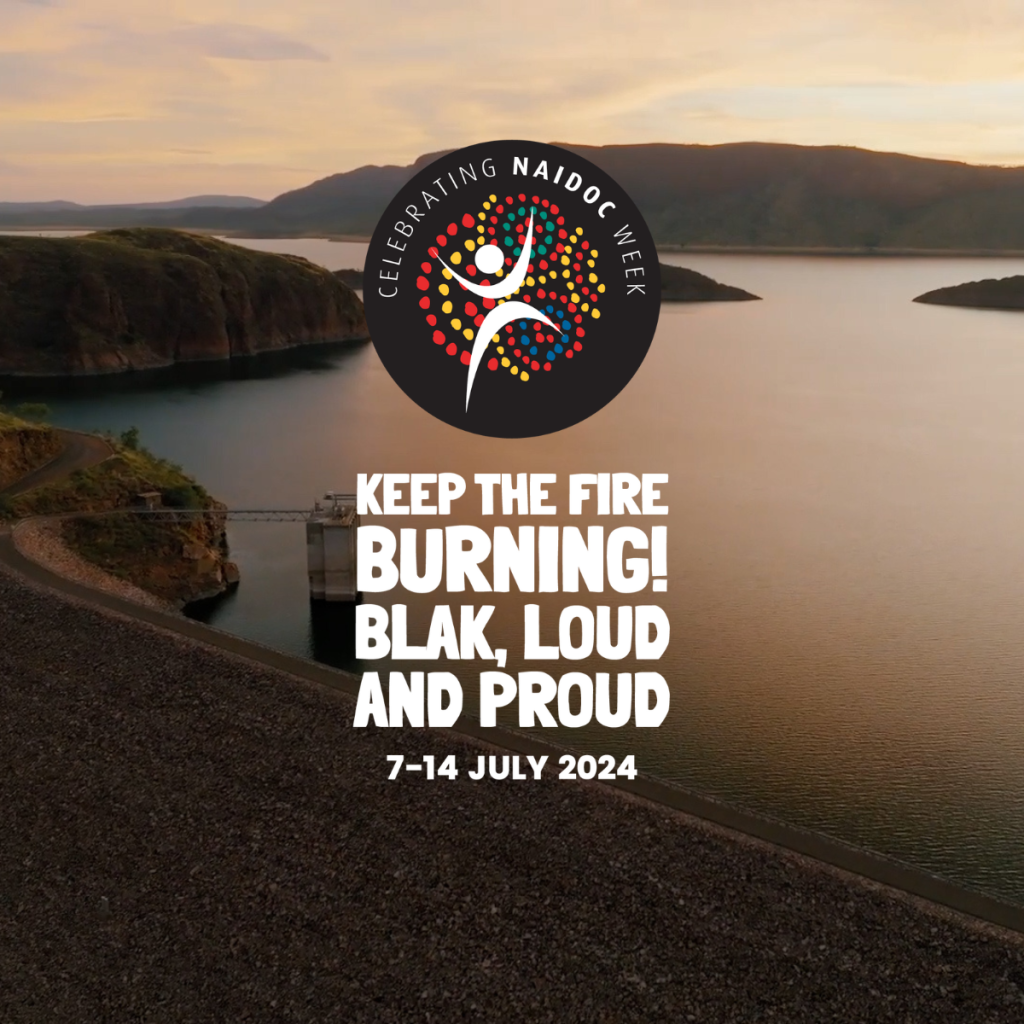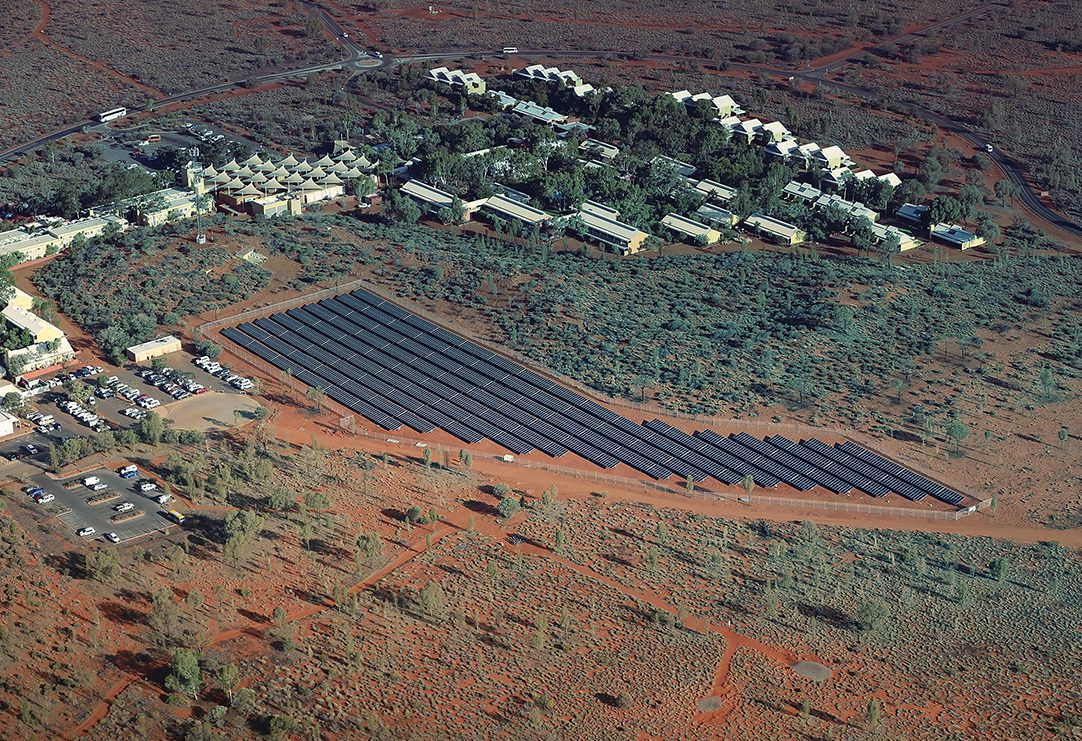- Battery storage
- General
- Hydrogen energy
- Hydropower / Pumped Hydro Energy Storage
- Off grid
- Renewables for industry
- Solar energy
Amplifying inclusion for First Nations People
Happy NAIDOC week, with this year’s theme of Keep the Fire Burning! Blak, Loud and Proud.

ARENA would like to acknowledge the Traditional Custodians of Australia and their deep cultural ties and history to Country. First Nations People have lived on this land for over 60,000 years and remain the oldest continuous culture in the world. Their deep care and connection to Country demonstrate the insight and opportunities for partnership on the path towards net zero.
Central to this is ensuring First Nations people have a greater say and stake moving forward. This includes collaboration on research and development, ownership of projects as well as shared and inclusive benefits from transformative projects across Traditional land and in First Nations communities.
Here are some ARENA projects that combine some, or all, of these elements.
Daly River Research Project
Many microgrids in the Northern Territory are fueled by diesel power generation which are costly, polluting and can be unreliable.
ARENA funded Research about key technical, design, implementation and operational considerations for mini-grid systems in remote Australia. The research investigated a hybrid solar power and diesel system to reduce emissions and provide clean energy to remote communities.
Former ARENA CEO Ivor Frischknecht says that “Many remote Australian communities rely on diesel generators that are expensive to run, with costs hard to forecast due to the volatility of fuel prices. Furthermore, delivering fuels long distances is costly, dangerous and subject to weather.”
First Nation Community Microgrids
As part of the Regional Microgrids Program, ARENA launched a $75million stream for microgrid projects in First Nations communities in August 2023.
Microgrids are a reliable way to ensure cheaper renewable energy especially on communities without grid infrastructure.
ARENA CEO Darren Miller says, “It’s vital we make sure Aboriginal and Torres Strait Islander people living in remote communities are able to participate in the electricity transition and share in the benefits of Australia’s renewable future,” Mr Miller said.
Removing the barriers and ensuring benefits are shared with First Nations people is core to this program which is open until December 2025.

East Kimberley Clean Energy Project
With a total of $1.67 million in funding from ARENA, the East Kimberley Project is the first of its kind.
Traditional Owners representing Balanggarra, Miriuwung and Gajerrong, along with the Aboriginal Clean Energy Partnership (ACEP), Kimberley Land Council and Pollination, will oversee a feasibility study to develop a large-scale hydrogen and ammonia production facility in the East Kimberley.
Currently at its first stage, the project gives First Nations partners decision-making control to increase collaboration and share benefits.
Lawford Benning, MG Corp Executive Chair said, “This is an exciting and new adventure that could provide opportunities for Traditional Owners the Miriuwung, Gajerrong and Balanggarra people in partnership with the Kimberley Land Council and Pollination to participate in the transition of a greener and cleaner way of working utilising our own natural resources here in the East Kimberley.
We can’t do this on our own. It takes great leadership and support of our Federal Government in collaboration with our Western Australian Government to back us in getting this right.”
Northern Territory Solar Energy Transformation Program
Announced on 31 May 2018, the Northern Territory Solar Energy Transformation Program deployed renewable energy systems to 26 remote communities across the Northern Territory. Most of the communities are home to First Nations people who are often reliant on diesel generators. This project aimed to reduce this reliance, which is costly and subject to price volatility, as well as create job opportunities in remote communities and provide renewable energy that could be expanded on in the future.
The project was completed in 2019 and will reduce diesel reliance by 15 % over the 25-year life of the program.
Power and Water Chief Executive Michael Thomson said: “This project demonstrates how delivery of cost-effective, renewable energy may be employed to provide reliable power to remote communities, where both energy demand and costs are high.”

The Yulara Solar Project
Led by Voyages Indigenous Tourism, the Yulara Resort near Uluru integrated a solar power system on site with funding from ARENA in 2016 and in partnership with Ark Energy.
The existing power system was fuelled entirely by compressed natural gas (CNG) delivered daily via road train from Alice Springs, 450 km from the resort.
With an abundant solar resource, the integration of solar energy into the power system was identified to manage the resort’s expenditure on energy over the long term, reduce exposure to energy price volatility and decrease the resort’s overall carbon emissions.
The establishment of a solid, renewable power system helps to reduce climate impact and reduce operational costs for First Nations people as a case study for other ecotourism operators.
The work continues
ARENA is also working towards greater representation of First Nations people in our Advisory Panel that gives specialist advice as well as reviews programs and projects.
As we move forward, we will continue to find opportunities to engage and share benefits with First Nations People through our role in the clean energy transition. Our goal is to continue partnerships that build equity, justice and a cleaner, greener Australia for all.
Happy NAIDOC week.

ARENA